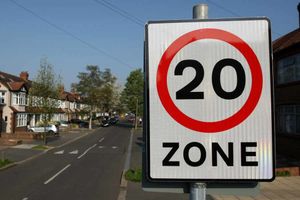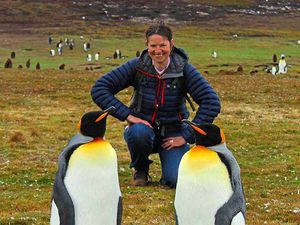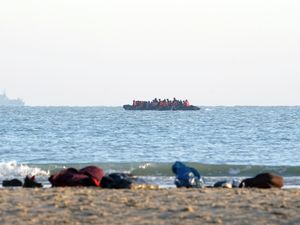Peter Rhodes on cleaning loos, crossing roads and the prospect of population collapse
Read the latest column from Peter Rhodes.

In the space of 24 hours two tornadoes struck, first in Texas and then in Northampton. A despairing county judge in Texas pleaded for help: “This incident is of such severity and magnitude that an effective response is beyond the capability of the local jurisdiction to control.” In Northampton a resident told his local paper “the bathroom window flew open and the blind was pulled from its fixings.”
According to some reports, staff returning to work after furlough have found their jobs have changed. In the interests of hygiene and virus control, some managers and office staff are now expected to clean their desks, the office, the corridors – and the loos. “I don't want to sound snobbish, but I felt I was treated badly,” says one 60-year-old manager at a safari park who decided to resign. If that's snobbish, I'm a snob, too. And the one thing we snobs avoid is stealing bog-cleaning work from genuine bog cleaners.
Back in the 1980s when the world's population reached five billion, I researched a feature about what the future might bring. Most experts suggested that by the end of the 21st century the number of humans would be anywhere between nine and 12 billion. With one exception. I found a study for the United Nations which considered the possibility of girls in developing countries being better educated and deciding to have fewer children. Result - population crash. Today, researchers at the University of Washington agree. They claim that falling fertility rates could have a “jaw-dropping” impact on societies. They expect global population to peak at 9.7 billion by 2064 and then tumble to 8.8 billion over the next 40 years.
But in a shrinking, ageing society, who will do the work and pay the taxes? Some experts predict the end of borders, with Western nations competing against each other to attract fit young immigrants. So instead of patrolling the English Channel to keep illegal immigrants out, the UK authorities will be scouring the oceans to pick up boat people to become the new Brits. A sea change.
Our main street has suddenly become a “20 mph zone,” presumably in the belief that slower means safer. I'm not convinced. Some years ago a 40mph limit near a school on my commute became 30mph, and instantly became more perilous. When cars whizzed by at 40mph, all the schoolkids used the pedestrian crossings. When the 30mph limit was imposed, vehicles travelled more slowly – and the kids dashed between them. It's the law of unintended consequences.
I take no pride in having made this forecast on August 18 last year after the killing of Pc Andrew Harper: “Don't be surprised if, despite 10 arrests for murder, this case doesn't result in a single murder conviction.” After last week's acquittals for murder and three convictions for the lesser charge of manslaughter, the dead officer's family, friends and colleagues feel betrayed by the system. We can only hope the judge's sentence, due today, brings them closure.





